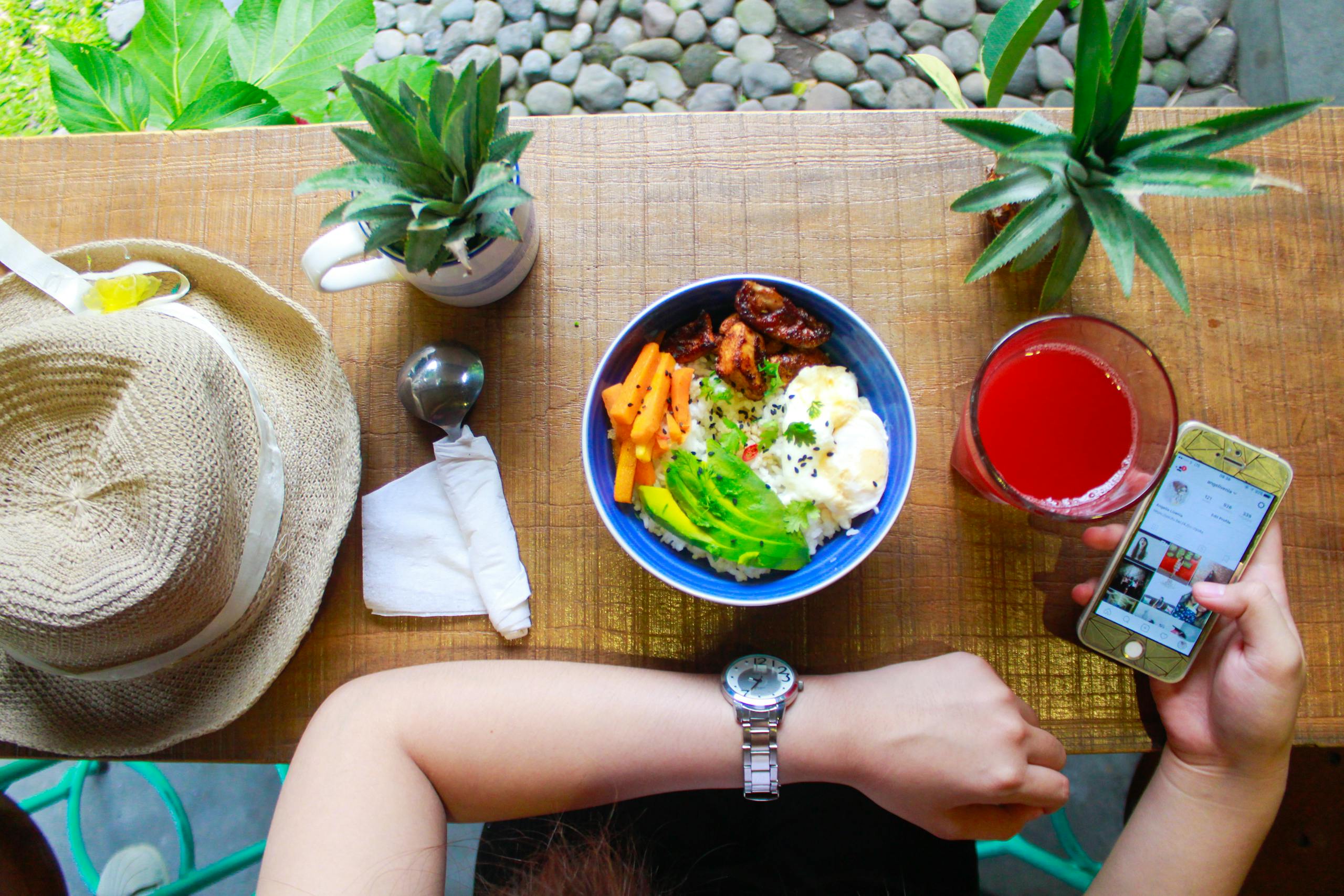Healthy Eating and Nutrition Tips for Digital Nomads
Maintaining a balanced diet while traveling can be challenging for digital nomads. Constant movement, new environments, and limited access to familiar food options make it easy to fall into unhealthy eating habits. However, healthy eating on the road is not only achievable but essential for sustaining energy, focus, and overall well-being. In this post, we’ll explore nutrition tips for digital nomads and provide practical advice on how to maintain a healthy diet, even when your office is a beach, a café, or a co-working space in a different country.
The Importance of Healthy Eating for Digital Nomads
As a digital nomad, your lifestyle is dynamic, often involving irregular hours, new cultures, and diverse food environments. This lifestyle can impact your health if not managed properly. It’s easy to grab fast food or skip meals when you’re busy, but these habits can lead to energy crashes, decreased productivity, and long-term health issues.
Healthy eating on the road helps maintain consistent energy levels, which is crucial for staying productive and enjoying your travels. A balanced diet supports cognitive function, improves mood, and boosts your immune system, helping you adapt to different climates and avoid illnesses. Additionally, making mindful food choices can enhance your travel experience, allowing you to explore local cuisines while still prioritizing your health.
Key Nutrition Tips for Digital Nomads
1. Plan Ahead for Healthy Meals
One of the best nutrition tips for digital nomads is to plan your meals ahead of time. When you know where you’ll be traveling, research local food options and grocery stores. If you’re staying in accommodations with a kitchen, consider cooking your own meals using fresh, local ingredients. This not only saves money but also gives you control over what you eat.
For those on the move, pack portable snacks such as nuts, seeds, dried fruits, or protein bars. These healthy options can prevent you from grabbing unhealthy fast food when hunger strikes. Additionally, carrying a reusable water bottle helps ensure you stay hydrated throughout the day, which is essential for maintaining energy levels.
2. Focus on Whole Foods
Prioritizing whole foods is another essential nutrition tip for digital nomads. Whole foods, such as fruits, vegetables, lean proteins, and whole grains, provide essential nutrients that support overall health. When eating out, opt for dishes that feature these ingredients. For example, choose grilled chicken or fish with a side of vegetables, or a salad with plenty of greens, nuts, and seeds.
Avoid processed foods and sugary drinks, which can lead to energy spikes and crashes. Instead, choose water, herbal teas, or freshly squeezed juices. Incorporating local fruits and vegetables into your diet not only adds variety but also ensures you’re consuming fresh produce that’s in season.
3. Keep It Simple with Basic Diets
For digital nomads who find it challenging to maintain a diverse diet, following a basic dietary plan can help. Here are a few simple diet suggestions:
- Mediterranean Diet: Rich in fruits, vegetables, whole grains, and lean proteins, the Mediterranean diet is easy to follow in many countries and promotes heart health.
- Plant-Based Diet: Focus on consuming plant-based foods like legumes, nuts, seeds, fruits, and vegetables. This diet is not only healthy but also sustainable and adaptable to various cuisines.
- Intermittent Fasting: If you struggle with finding healthy food throughout the day, intermittent fasting can be an option. This eating pattern involves cycles of fasting and eating, which can simplify your meal planning and help you focus on nutrient-dense foods.
4. Prioritize Protein and Fiber
Protein and fiber are crucial components of a balanced diet, especially for digital nomads. Protein helps build and repair tissues, while fiber aids in digestion and keeps you feeling full longer. Include protein-rich foods like eggs, fish, lean meats, and legumes in your meals. For fiber, incorporate whole grains, fruits, vegetables, and legumes into your diet.
These nutrients help stabilize blood sugar levels, preventing energy dips that can affect your productivity. Additionally, they promote satiety, reducing the likelihood of overeating or snacking on unhealthy foods.
5. Stay Flexible and Adapt to Local Cuisines
As a digital nomad, you’ll encounter various cuisines, each with its own unique flavors and ingredients. Staying flexible and adapting to local foods can enhance your travel experience while still prioritizing health. When exploring new foods, look for traditional dishes that are naturally healthy, such as sushi in Japan, ceviche in Peru, or ratatouille in France.
Don’t be afraid to ask locals for recommendations on healthy eateries or markets where you can find fresh produce. This approach not only helps you eat well but also allows you to immerse yourself in the local culture.

Making Healthy Eating Sustainable for Digital Nomads
Building Healthy Eating Habits
Consistency is key when it comes to maintaining healthy eating on the road. Establishing a routine that includes regular meals, exercise, and sufficient sleep can help you stay on track, even in a constantly changing environment. Consider setting aside time each week to plan your meals, shop for groceries, and prepare snacks. This routine helps you avoid last-minute unhealthy food choices and ensures you have nourishing options available.
Staying Mindful of Portion Sizes
When dining out, be mindful of portion sizes, as restaurant meals can often be larger than necessary. Consider sharing dishes or opting for smaller portions to avoid overeating. If you have access to a kitchen, cooking your own meals allows you to control portion sizes and ingredients.
Balancing Indulgence with Nutrition
Traveling as a digital nomad often includes indulging in local delicacies and unique culinary experiences. While it’s important to enjoy these moments, balance them with nutritious meals. For example, if you have a heavy meal one day, opt for lighter, vegetable-based meals the next. This balance helps you enjoy the local cuisine without compromising your health.
Embracing a Healthy Lifestyle on the Road
Maintaining healthy eating on the road is not just about food choices; it’s about embracing a holistic approach to well-being. Regular exercise, adequate sleep, and stress management are equally important components of a healthy lifestyle. Incorporating physical activity into your daily routine, whether it’s through walking, yoga, or a workout at a local gym, can boost your energy and mood. Prioritizing sleep and managing stress through mindfulness practices can further enhance your overall well-being.
For additional resources on maintaining a healthy lifestyle as a digital nomad, consider exploring Nomad Health, which offers tips and tools for staying healthy while traveling, and World Nomads, a travel insurance company with insights into health and wellness on the road.
By following these nutrition tips for digital nomads, you can enjoy the freedom and adventure of the digital nomad lifestyle without compromising your health. Making mindful choices about what you eat, staying active, and maintaining a balanced routine will help you thrive, no matter where your travels take you.













